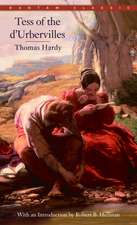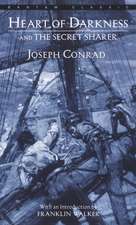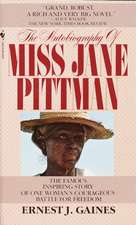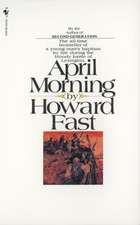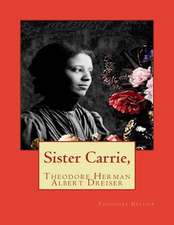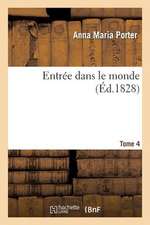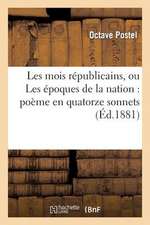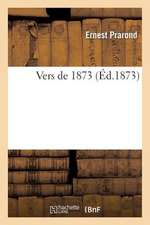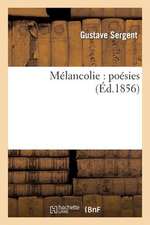Sister Carrie: Mint Editions
Autor Theodore Dreiseren Limba Engleză Paperback – mai 2021
Sister Carrie by "Theodore Dreiser" has been called the "greatest of all American urban novels." Caroline "Sister Carrie" Meeber, a young country girl, moves to the big city where she starts realizing her own American Dream, first as a mistress to men that she perceives as superior, and later becoming a famous actress.
Dissatisfied with life in her rural Wisconsin home, 18-year-old Caroline takes the train to Chicago, where her older sister Minnie haa agreed to take her in. On the train, Carrie meets Charles Drouet, a traveling salesman, who is attracted to her because of her simple beauty and unspoiled manner. They exchange contact information, but upon discovering the "steady round of toil" and somber atmosphere at her sister's flat, she writes to Drouet and discourages him from calling on her there.
One day, after an illness that costs her job, she encounters Drouet on a downtown street. Once again taken by her beauty, and moved by her poverty, he encourages her to dine with him, where, over sirloin and asparagus, he persuades her to leave her sister and move in with him. To press his case, he slips Carrie two ten dollar bills, opening a vista of material possibilities to her. The next day, he rebuffs her feeble attempts to return the money, taking her shopping at a Chicago department store and securing a jacket she covets and some shoes. That night, she writes a good-bye note to Minnie and moves in with Drouet.
Theodore Dreiser is considered one of America's greatest naturalists, notable because he wrote at the early stages of the naturalist movement. Sister Carrie was a movement away from the emphasis on morals of the Victorian era and focused more on realism and the base instincts of humans.
Sister Carrie went against social and moral norms of the time, as Dreiser presented his characters without judging them. Dreiser fought against censorship of Sister Carrie, brought about because Carrie engaged in affairs and other "illicit sexual relationships" without suffering any consequences. This flouted prevailing norms, that a character who practiced such sinful behavior must be punished in the course of the plot in order to be taught a lesson.
| Toate formatele și edițiile | Preț | Express |
|---|---|---|
| Paperback (25) | 39.62 lei 3-5 săpt. | +11.03 lei 5-11 zile |
| Bantam Books – 31 dec 1981 | 39.62 lei 3-5 săpt. | +11.03 lei 5-11 zile |
| Simon&Schuster – 30 iun 2008 | 41.98 lei 3-5 săpt. | +10.66 lei 5-11 zile |
| Penguin Random House Group – 28 apr 2010 | 44.30 lei 3-5 săpt. | |
| Oxford University Press – 26 mar 2009 | 50.73 lei 10-16 zile | +22.02 lei 5-11 zile |
| e-artnow – 3 iul 2022 | 67.11 lei 3-5 săpt. | |
| CreateSpace Independent Publishing Platform – | 68.49 lei 3-5 săpt. | |
| Penguin Books – 29 mar 1995 | 70.96 lei 24-30 zile | +27.91 lei 5-11 zile |
| CreateSpace Independent Publishing Platform – | 92.86 lei 3-5 săpt. | |
| – | 107.70 lei 3-5 săpt. | |
| Mint Editions – mai 2021 | 110.49 lei 3-5 săpt. | |
| CREATESPACE – | 113.78 lei 3-5 săpt. | |
| – | 127.44 lei 3-5 săpt. | |
| CreateSpace Independent Publishing Platform – | 128.63 lei 3-5 săpt. | |
| KUPERARD (BRAVO LTD) – 2000 | 132.17 lei 3-5 săpt. | |
| Bottom of the Hill Publishing – 31 mar 2012 | 137.77 lei 3-5 săpt. | |
| CreateSpace Independent Publishing Platform – | 145.59 lei 3-5 săpt. | |
| CreateSpace Independent Publishing Platform – | 159.59 lei 3-5 săpt. | |
| CREATESPACE – | 170.30 lei 3-5 săpt. | |
| Outlook Verlag – 24 sep 2019 | 445.83 lei 3-5 săpt. | |
| Digireads.com – 5 iun 2018 | 109.22 lei 6-8 săpt. | |
| SMK Books – 25 apr 2011 | 131.42 lei 6-8 săpt. | |
| – | 131.65 lei 6-8 săpt. | |
| Bibliotech Press – 28 aug 2020 | 135.58 lei 6-8 săpt. | |
| Lulu.Com – 9 mar 2020 | 212.75 lei 6-8 săpt. | |
| Book Jungle – 19 iun 2007 | 265.22 lei 6-8 săpt. | |
| Hardback (3) | 163.70 lei 3-5 săpt. | |
| Mint Editions – 21 mai 2021 | 163.70 lei 3-5 săpt. | |
| Outlook Verlag – 24 sep 2019 | 473.21 lei 3-5 săpt. | |
| SMK Books – 3 apr 2018 | 245.84 lei 6-8 săpt. |
Din seria Mint Editions
-
 Preț: 32.32 lei
Preț: 32.32 lei -
 Preț: 111.03 lei
Preț: 111.03 lei -
 Preț: 81.23 lei
Preț: 81.23 lei -
 Preț: 92.53 lei
Preț: 92.53 lei -
 Preț: 56.26 lei
Preț: 56.26 lei -
 Preț: 43.90 lei
Preț: 43.90 lei -
 Preț: 153.79 lei
Preț: 153.79 lei -
 Preț: 62.64 lei
Preț: 62.64 lei -
 Preț: 27.00 lei
Preț: 27.00 lei -
 Preț: 299.10 lei
Preț: 299.10 lei -
 Preț: 177.54 lei
Preț: 177.54 lei -
 Preț: 74.19 lei
Preț: 74.19 lei -
 Preț: 146.59 lei
Preț: 146.59 lei -
 Preț: 62.45 lei
Preț: 62.45 lei -
 Preț: 210.27 lei
Preț: 210.27 lei -
 Preț: 117.10 lei
Preț: 117.10 lei -
 Preț: 85.73 lei
Preț: 85.73 lei -
 Preț: 50.05 lei
Preț: 50.05 lei -
 Preț: 161.22 lei
Preț: 161.22 lei -
 Preț: 68.66 lei
Preț: 68.66 lei -
 Preț: 99.14 lei
Preț: 99.14 lei -
 Preț: 68.21 lei
Preț: 68.21 lei -
 Preț: 54.64 lei
Preț: 54.64 lei -
 Preț: 41.11 lei
Preț: 41.11 lei -
 Preț: 237.11 lei
Preț: 237.11 lei -
 Preț: 103.89 lei
Preț: 103.89 lei -
 Preț: 49.88 lei
Preț: 49.88 lei -
 Preț: 55.61 lei
Preț: 55.61 lei -
 Preț: 116.88 lei
Preț: 116.88 lei -
 Preț: 32.32 lei
Preț: 32.32 lei -
 Preț: 38.70 lei
Preț: 38.70 lei -
 Preț: 69.30 lei
Preț: 69.30 lei -
 Preț: 49.88 lei
Preț: 49.88 lei -
 Preț: 25.53 lei
Preț: 25.53 lei -
 Preț: 32.76 lei
Preț: 32.76 lei -
 Preț: 66.16 lei
Preț: 66.16 lei -
 Preț: 56.67 lei
Preț: 56.67 lei -
 Preț: 55.20 lei
Preț: 55.20 lei -
 Preț: 43.90 lei
Preț: 43.90 lei -
 Preț: 75.01 lei
Preț: 75.01 lei -
 Preț: 37.88 lei
Preț: 37.88 lei -
 Preț: 43.04 lei
Preț: 43.04 lei -
 Preț: 68.02 lei
Preț: 68.02 lei -
 Preț: 99.77 lei
Preț: 99.77 lei -
 Preț: 75.20 lei
Preț: 75.20 lei -
 Preț: 117.10 lei
Preț: 117.10 lei -
 Preț: 56.26 lei
Preț: 56.26 lei -
 Preț: 56.26 lei
Preț: 56.26 lei -
 Preț: 37.88 lei
Preț: 37.88 lei -
 Preț: 202.36 lei
Preț: 202.36 lei
Preț: 110.49 lei
Nou
21.15€ • 22.98$ • 17.78£
Carte disponibilă
Livrare economică 31 martie-14 aprilie
Specificații
ISBN-10: 1513282336
Pagini: 416
Dimensiuni: 127 x 203 x 24 mm
Greutate: 0.45 kg
Editura: Mint Editions
Seria Mint Editions
Notă biografică
Numerous cuts and changes had been made in the lengthy original manuscript by various hands, including those of Arthur Henry, Dreiser himself. Later, when given to mythologizing his career, Dreiser was to suggest that the publishing history of Sister Carrie had been one of bowdlerization and suppression only; but the publication of his unedited manuscript by the University of Pennsylvania Press in 1981 shows that Dreiser approved and even welcomed Henry’s and Jug’s alterations. (Whether the book was ultimately improved or compromised by their liberal editing is a fascinating and as yet unresolved issue among Dreiser scholars.) Sister Carrie sold poorly, but writers like Frank Norris and William Dean Howells saw it as a breakthrough in American realism, and Dreiser’s career as a novelist was launched.
The Financer (1912) and The Titan (1914) began his trilogy about the rise of a tycoon, but it was An American Tragedy (1925), based on newspaper accounts of a sensational murder case, which brought him fame. The novel was dramatized on Broadway and sold to Hollywood. Newly influential and affluent, Dreiser visited Russia and was unimpressed, describing his observations in the skeptical Dreiser Looks at Russia (1928). In later years, however, he became an ardent (through unorthodox) Communist, writing political Treatises such as America Is Worth Saving (1941) His artistic powers on the wane, Dreiser moved to Hollywood in 1939 and supported himself largely by the sale of film rights of his earlier works. He dies there, in 1945, at the age of seventy-four.
Extras
THE MAGNET ATTRACTING: A WAIF AMID FORCES
WHEN CAROLINE Meeber boarded the afternoon train for Chicago, her total outfit consisted of a small trunk, a cheap imitation alligator-skin satchel, a small lunch in a paper box, and a yellow leather snap purse, containing her ticket, a scrap of paper with her sister's address in Van Buren Street, and four dollars in money. It was in August, 1889. She was eighteen years of age, bright, timid, and full of the illusions of ignorance and youth. Whatever touch of regret at parting characterized her thoughts, it was certainly not for advantages now being given up. A gush of tears at her mother's farewell kiss, a touch in her throat when the cars clacked by the flour mill where her father worked by the day, a pathetic sigh as the familiar green environs of the village passed in review, and the threads which bound her so lightly to girlhood and home were irretrievably broken.
To be sure there was always the next station, where one might descend and return. There was the great city, bound more closely by these very trains which came up daily. Columbia City was not so very far away, even once she was in Chicago. What, pray, is a few hours—a few hundred miles? She looked at the little slip bearing her sister's address and wondered. She gazed at the green landscape, now passing in swift review, until her swifter thoughts replaced its impression with vague conjectures of what Chicago might be.
When a girl leaves her home at eighteen, she does one of two things. Either she falls into saving hands and becomes better, or she rapidly assumes the cosmopolitan standard of virtue and becomes worse. Of an intermediate balance, under the circumstances, there is no possibility. The city has its cunning wiles, no less than the infinitely smaller and more human tempter. There are large forces which allure with all the soulfulness of expression possible in the most cultured human. The gleam of a thousand lights is often as effective as the persuasive light in a wooing and fascinating eye. Half the undoing of the unsophisticated and natural mind is accomplished by forces wholly superhuman. A blare of sound, a roar of life, a vast array of human hives, appeal to the astonished senses in equivocal terms. Without a counselor at hand to whisper cautious interpretations, what falsehoods may not these things breathe into the unguarded ear? Unrecognized for what they are, their beauty, like music, too often relaxes, then weakens, then perverts the simpler human perceptions.
Caroline, or Sister Carrie, as she had been half affectionately termed by the family, was possessed of a mind rudimentary in its power of observation and analysis. Self-interest with her was high, but not strong. It was, nevertheless, her guiding characteristic. Warm with the fancies of youth, pretty with the insipid prettiness of the formative period, possessed of a figure promising eventual shapeliness and an eye alight with certain native intelligence, she was a fair example of the middle American class—two generations removed from the emigrant. Books were beyond her interest—knowledge a sealed book. In the intuitive graces she was still crude. She could scarcely toss her head gracefully. Her hands were almost ineffectual. The feet, though small, were set flatly.
And yet she was interested in her charms, quick to understand the keener pleasures of life, ambitious to gain in material things. A half-equipped little knight she was, venturing to reconnoiter the mysterious city and dreaming wild dreams of some vague, far-off supremacy, which should make it prey and subject—the proper penitent, groveling at a woman's slipper.
"That," said a voice in her ear, "is one of the prettiest little resorts in Wisconsin."
"Is it?" she answered nervously.
The train was just pulling out of Waukesha. For some time she had been conscious of a man behind.
She felt him observing her mass of hair. He had been fidgeting, and with natural intuition she felt a certain interest growing in that quarter. Her maidenly reserve, and a certain sense of what was conventional under the circumstances, called her to forestall and deny this familiarity, but the daring and magnetism of the individual, born of past experiences and triumphs, prevailed. She answered.
He leaned forward to put his elbows upon the back of her seat and proceeded to make himself volubly agreeable.
"Yes, that is a great resort for Chicago people. The hotels are swell. You are not familiar with this part of the country, are you?"
"Oh, yes, I am," answered Carrie. "That is, I live at Columbia City. I have never been through here, though."
"And so this is your first visit to Chicago," he observed.
All the time she was conscious of certain features out of the side of her eye. Flush, colorful cheeks, a light moustache, a gray fedora hat. She now turned and looked upon him in full, the instincts of self-protection and coquetry mingling confusedly in her brain.
"I didn't say that," she said.
"Oh," he answered, in a very pleasing way and with an assumed air of mistake, "I thought you did."
Here was a type of the traveling canvasser for a manufacturing house—a class which at that time was first being dubbed by the slang of the day "drummers." He came within the meaning of a still newer term, which had sprung into general use among Americans in 1880, and which concisely expressed the thought of one whose dress or manners are calculated to elicit the admiration of susceptible young women—a "masher." His suit was of a striped and crossed pattern of brown wool, new at that time, but since become familiar as a business suit. The low crotch of the vest revealed a stiff shirt bosom of white and pink stripes. From his coat sleeves protruded a pair of linen cuffs of the same pattern, fastened with large, gold plate buttons, set with the common yellow agates known as "cat's-eyes." His fingers bore several rings—one, the ever-enduring heavy seal—and from his vest dangled a neat gold watch chain, from which was suspended the secret insignia of the Order of Elks. The whole suit was rather tight-fitting, and was finished off with heavy-soled tan shoes, highly polished, and the gray fedora hat. He was, for the order of intellect represented, attractive, and whatever he had to recommend him, you may be sure was not lost upon Carrie, in this, her first glance.
Lest this order of individual should permanently pass, let me put down some of the most striking characteristics of his most successful manner and method. Good clothes, of course, were the first essential, the things without which he was nothing. A strong physical nature, actuated by a keen desire for the feminine, was the next. A mind free of any consideration of the problems or forces of the world and actuated not by greed, but an insatiable love of variable pleasure. His method was always simple. Its principal element was daring, backed, of course, by an intense desire and admiration for the sex. Let him meet with a young woman once and he would approach her with an air of kindly familiarity, not unmixed with pleading, which would result in most cases in a tolerant acceptance. If she showed any tendency to coquetry he would be apt to straighten her tie, or if she "took up" with him at all, to call her by her first name. If he visited a department store it was to lounge familiarly over the counter and ask some leading questions. In more exclusive circles, on the train or in waiting stations, he went slower. If some seemingly vulnerable object appeared he was all attention—to pass the compliments of the day, to lead the way to the parlor car, carrying her grip, or, failing that, to take a seat next her with the hope of being able to court her to her destination. Pillows, books, a footstool, the shade lowered; all these figured in the things which he could do. If, when she reached her destination he did not alight and attend her baggage for her, it was because, in his own estimation, he had signally failed.
A woman should some day write the complete philosophy of clothes. No matter how young, it is one of the things she wholly comprehends. There is an indescribably faint line in the matter of a man's apparel which somehow divides for her those who are worth glancing at and those who are not. Once an individual has passed this faint line on the way downward he will get no glance from her. There is another line at which the dress of a man will cause her to study her own. This line the individual at her elbow now marked for Carrie. She became conscious of an inequality. Her own plain blue dress, with its black cotton tape trimmings, now seemed to her shabby. She felt the worn state of her shoes.
"Let's see," he went on, "I know quite a number of people in your town. Morgenroth the clothier and Gibson the dry goods man."
"Oh, do you?" she interrupted, aroused by memories of longings their show windows had cost her.
At last he had a clue to her interest, and followed it deftly. In a few minutes he had come about into her seat. He talked of sales of clothing, his travels, Chicago, and the amusements of that city.
"If you are going there, you will enjoy it immensely. Have you relatives?"
"I am going to visit my sister," she explained.
"You want to see Lincoln Park," he said, "and Michigan Boulevard. They are putting up great buildings there. It's a second New York—great. So much to see—theaters, crowds, fine houses—oh, you'll like that."
There was a little ache in her fancy of all he described. Her insignificance in the presence of so much magnificence faintly affected her. She realized that hers was not to be a round of pleasure, and yet there was something promising in all the material prospect he set forth. There was something satisfactory in the attention of this individual with his good clothes. She could not help smiling as he told her of some popular actress of whom she reminded him. She was not silly, and yet attention of this sort had its weight.
"You will be in Chicago some little time, won't you?" he observed at one turn of the now easy conversation.
"I don't know," said Carrie vaguely—a flash vision of the possibility of her not securing employment rising in her mind.
"Several weeks, anyhow," he said, looking steadily into her eyes.
There was much more passing now than the mere words indicated. He recognized the indescribable thing that made up for fascination and beauty in her. She realized that she was of interest to him from the one standpoint which a woman both delights in and fears. Her manner was simple, though for the very reason that she had not yet learned the many little affectations with which women conceal their true feelings. Some things she did appeared bold. A clever companion—had she ever had one—would have warned her never to look a man in the eyes so steadily.
"Why do you ask?" she said.
"Well, I'm going to be there several weeks. I'm going to study stock at our place and get new samples. I might show you 'round."
"I don't know whether you can or not. I mean I don't know whether I can. I shall be living with my sister, and—"
"Well, if she minds, we'll fix that." He took out his pencil and a little pocket note-book as if it were all settled. "What is your address there?"
She fumbled her purse which contained the address slip.
He reached down in his hip pocket and took out a fat purse. It was filled with slips of paper, some mileage books, a roll of greenbacks. It impressed her deeply. Such a purse had never been carried by any one attentive to her. Indeed, an experienced traveler, a brisk man of the world, had never come within such close range before. The purse, the shiny tan shoes, the smart new suit, and the air with which he did things, built up for her a dim world of fortune, of which he was the center. It disposed her pleasantly toward all he might do.
He took out a neat business card, on which was engraved Bartlett, Caryoe & Company, and down in the left-hand corner, Chas. H. Drouet.
"That's me," he said, putting the card in her hand and touching his name. "It's pronounced Drew-eh. Our family was French, on my father's side."
She looked at it while he put up his purse. Then he got out a letter from a bunch in his coat pocket.
"This is the house I travel for," he went on, pointing to a picture on it, "corner of State and Lake." There was pride in his voice. He felt that it was something to be connected with such a place, and he made her feel that way.
"What is your address?" he began again, fixing his pencil to write.
She looked at his hand.
"Carrie Meeber," she said slowly. "Three hundred and fifty-four West Van Buren Street, care S. C. Hanson."
He wrote it carefully down and got out the purse again. "You'll be at home if I come around Monday night?" he said.
"I think so," she answered.
How true it is that words are but the vague shadows of the volumes we mean. Little audible links, they are, chaining together great inaudible feelings and purposes. Here were these two, bandying little phrases, drawing purses, looking at cards, and both unconscious of how inarticulate all their real feelings were. Neither was wise enough to be sure of the working of the mind of the other. He could not tell how his luring succeeded. She could not realize that she was drifting, until he secured her address. Now she felt that she had yielded something—he, that he had gained a victory. Already they felt that they were somehow associated. Already he took control in directing the conversation. His words were easy. Her manner was relaxed.
They were nearing Chicago. Signs were everywhere numerous. Trains flashed by them. Across wide stretches of flat, open prairie they could see lines of telegraph poles stalking across the fields toward the great city. Far away were indications of suburban towns, some big smoke-stacks towering high in the air.
Frequently there were two-story frame houses standing out in the open fields, without fence or trees, lone outposts of the approaching army of homes.
To the child, the genius with imagination, or the wholly untraveled, the approach to a great city for the first time is a wonderful thing. Particularly if it be evening—that mystic period between the glare and gloom of the world when life is changing from one sphere or condition to another. Ah, the promise of the night. What does it not hold for the weary!
Descriere
`When a girl leaves her home at eighteen, she does one of two things. Either she falls into saving hands and becomes better, or she rapidly assumes the cosmopolitan standard of virtue and becomes worse.' The tale of Carrie Meeber's rise to stardom in the theatre and George Hurstwood's slow decline captures the twin poles of exuberance and exhaustion in modern city life as never before. The premier example of American naturalism, Dreiser's remarkable first novel has deeply influenced such key writers as William Faulkner, F. Scott Fitzgerald, Saul Bellow, and Joyce Carol Oates. This edition uses the 1900 text, which is regarded as the author's final version. ABOUT THE SERIES: For over 100 years Oxford World's Classics has made available the widest range of literature from around the globe. Each affordable volume reflects Oxford's commitment to scholarship, providing the most accurate text plus a wealth of other valuable features, including expert introductions by leading authorities, helpful notes to clarify the text, up-to-date bibliographies for further study, and much more.

